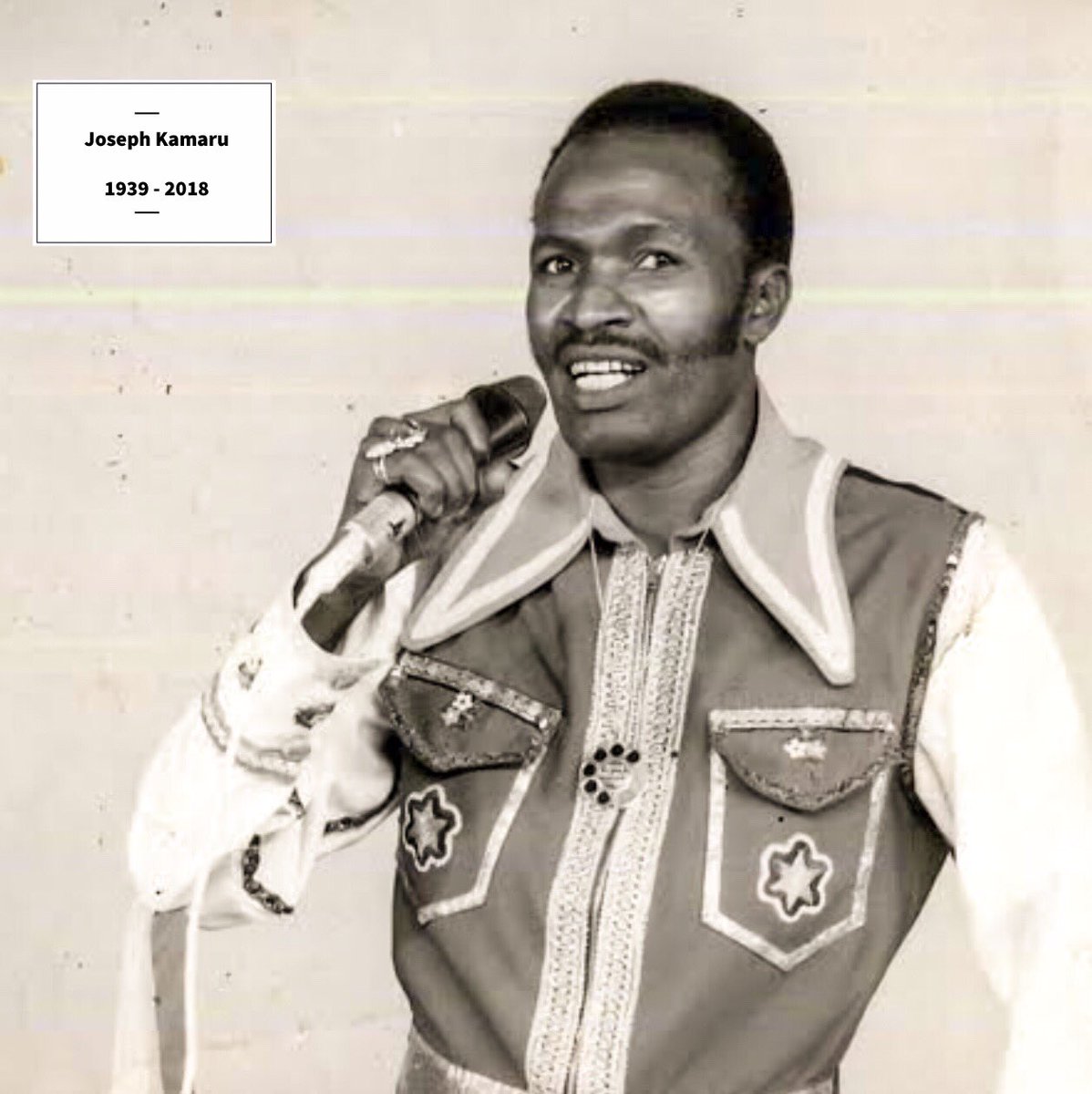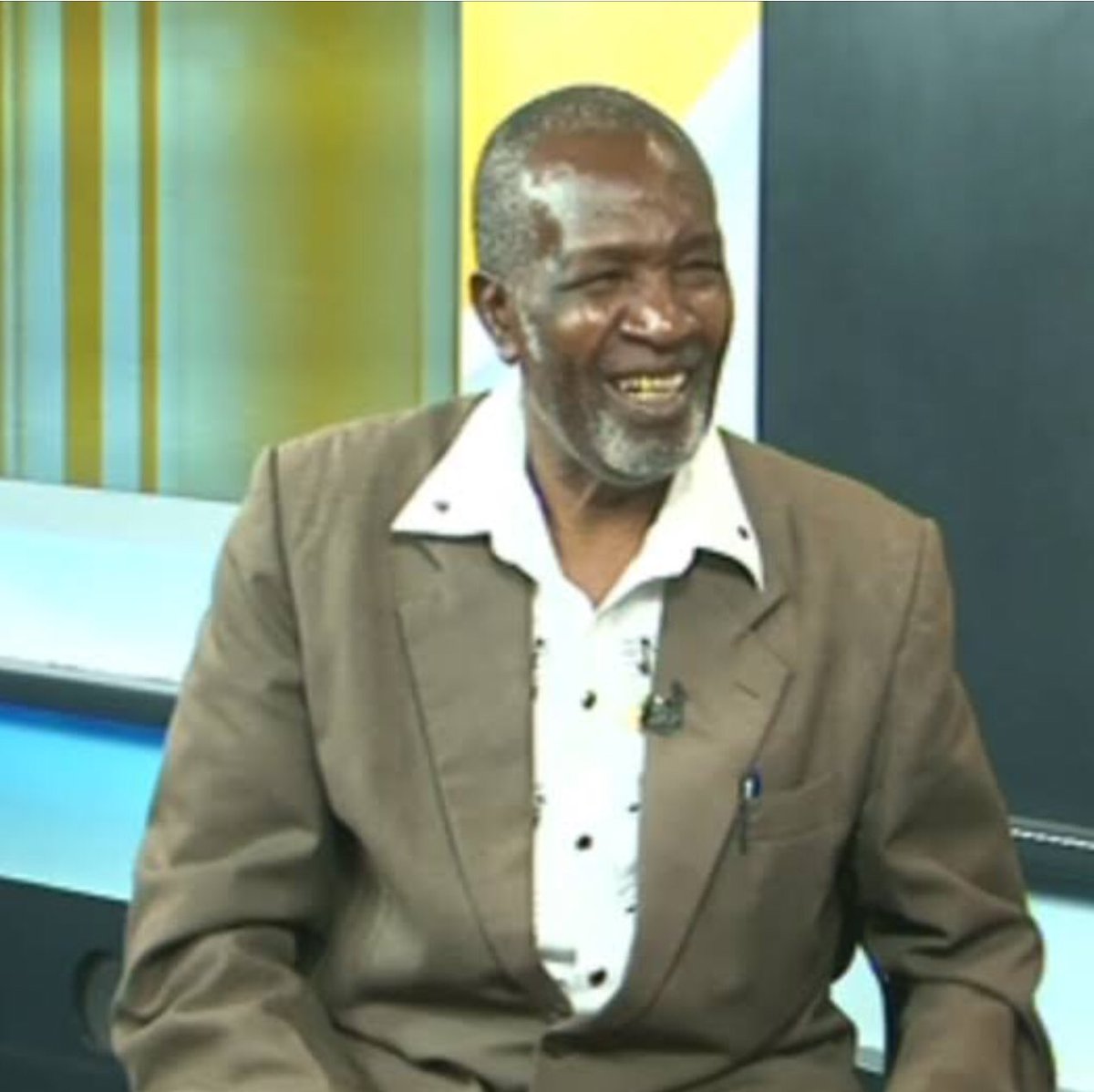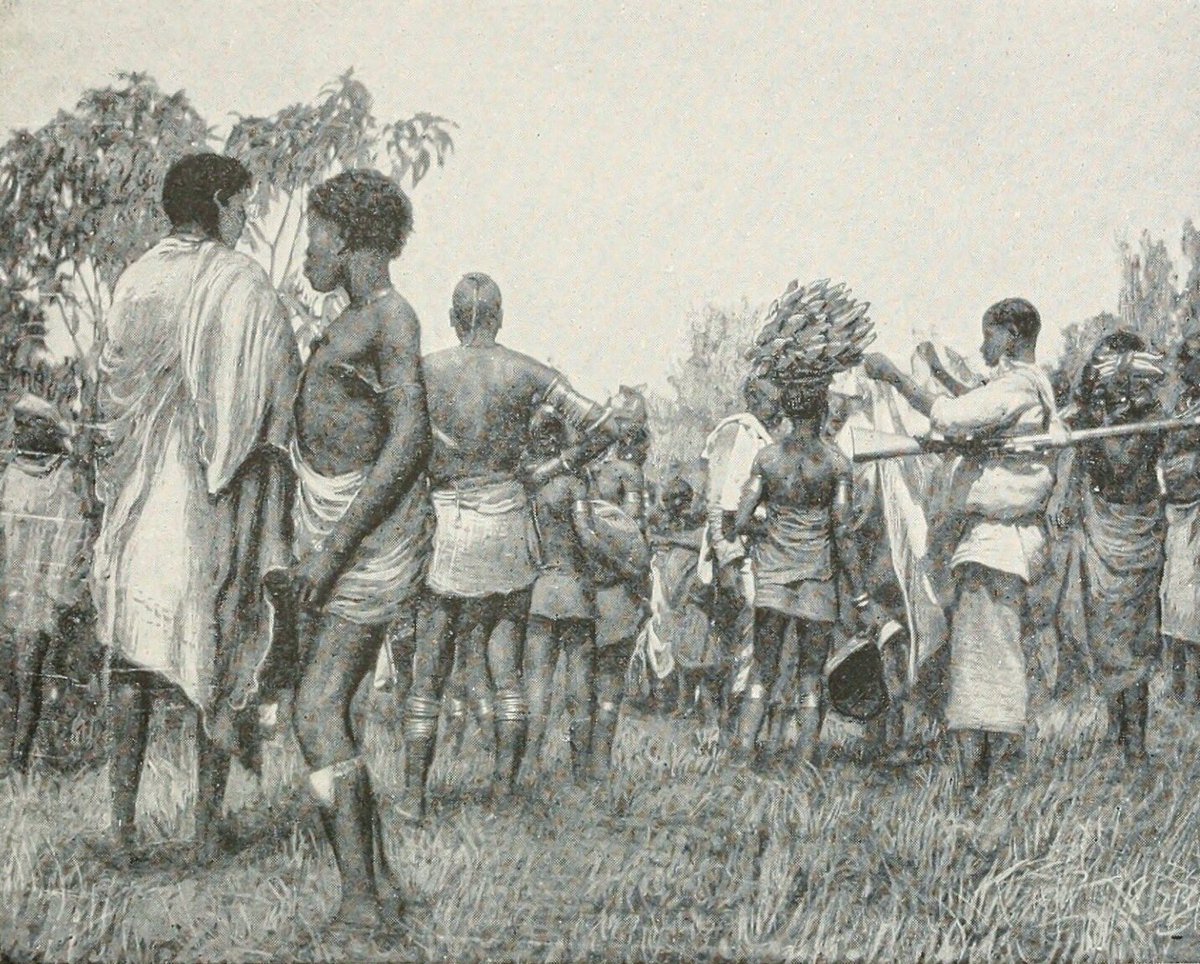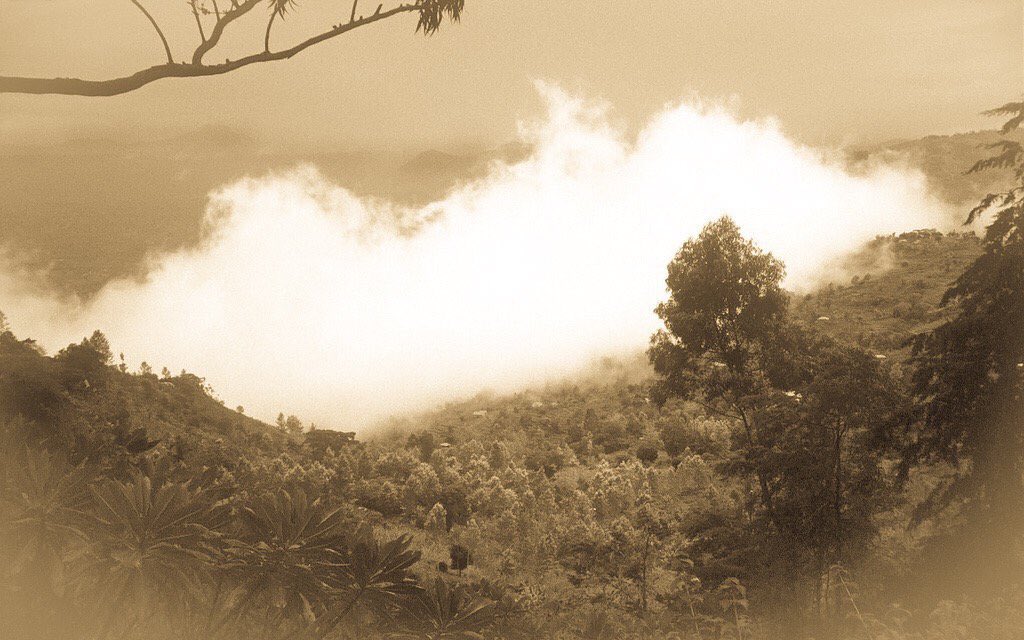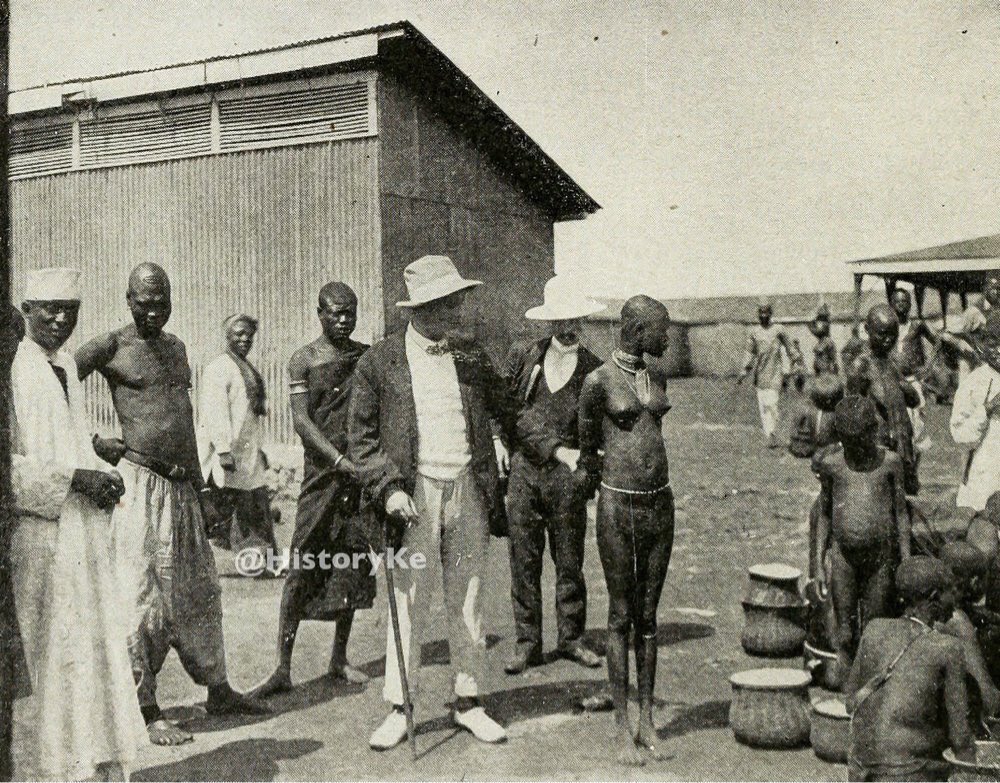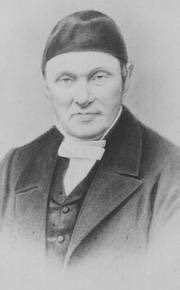1/18 #HistoryKeThread: When Kenya Sparred With Egypt
2/18 Shortly after independence, Kenya was confronted with the shifta menace, a nagging war that was mostly fought in the country's north eastern province. 
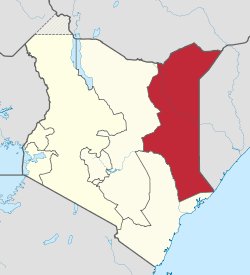
3/18 The shifta war with Somalia was one that stemmed from that country laying territorial claim to parts of Kenya.
4/18 The war did end with a ceasefire agreement signed in 1967 between the two governments. But even after the ceasefire agreement, Somalia continued to lay claim on parts of Kenya’s north eastern province.
5/18 In further peace talks held in 1969, Mzee Kenyatta affirmed that Kenya would not cede even an inch of Kenya’s border and was prepared to defend it by all means. Acting as mediator, Zambian President Kenneth Kaunda flew in to Nairobi that year to try and...
6/18 ...defuse the tension. He is seen here with a pensive Mzee Kenyatta and Somalia’s Prime Minister Mohammed Egal. The leaders agreed to stand down. 
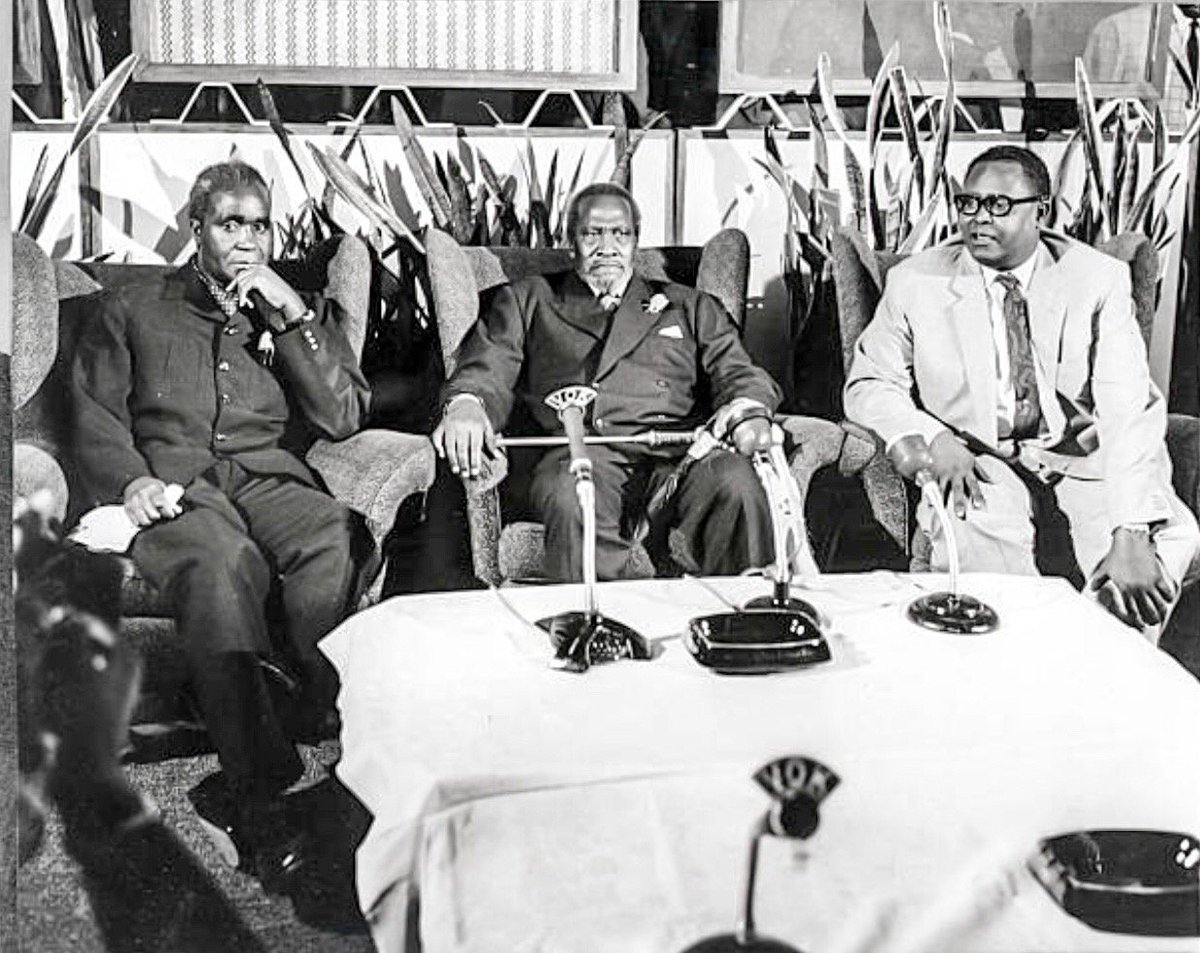
7/18 Later, from the mid-to-late 1970s, Ethiopia went into war with Somalia over the latter's invasion of the Ogaden region.
8/18 Kenya sent troops to fight alongside Ethiopia against Somalia. In those years, Kenya had a mutual defence pact with her northern neighbour.
9/18 Inevitably, diplomatic relations between Kenya and Somalia took a nose dive.
10/18 On 16th February 1978, an Egyptian airliner enroute Mogadishu was intercepted by fighter jets of the Kenya Air Force. 
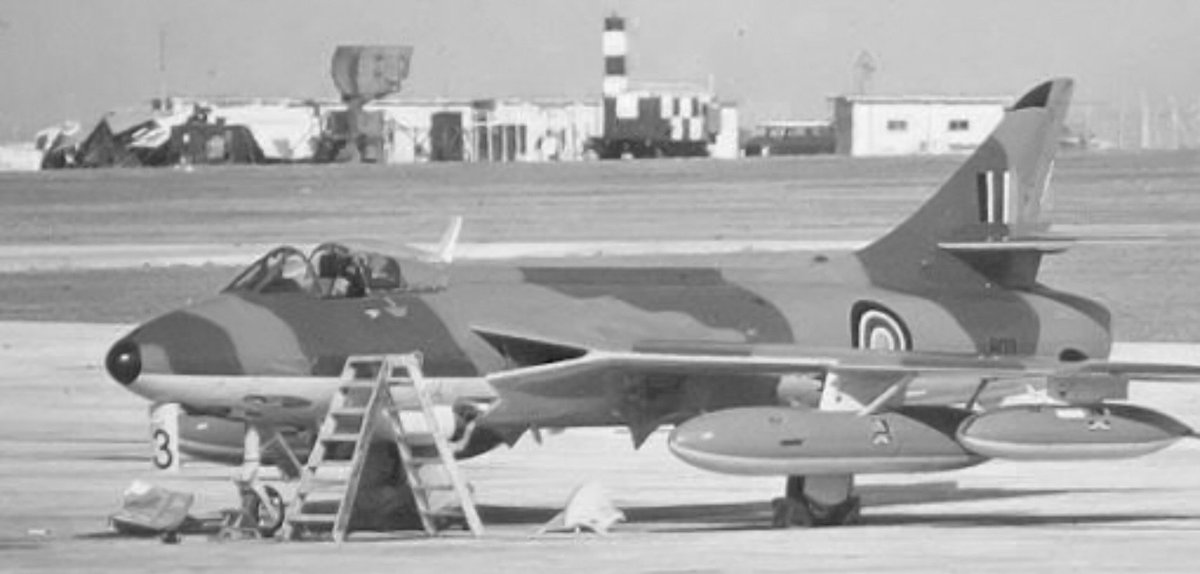
11/18 The Egyptair Boeing 707 was forced to land in Nairobi and, for the next 24 hours or so, kept under heavy guard by the GSU at Embakasi airport. 
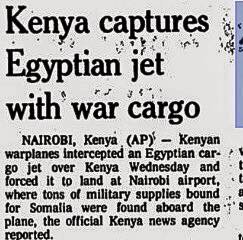
12/18 In the plane were found 244 bombs and 200 boxes of ammunition that included 122mm artillery shells.
13/18 The Kenyan government believed that these were supplies destined for the Somalia military.
14/18 Earlier in the week, the Associated Press had reported that Kenya had turned down a request from Cairo to have Egyptian airliners use Kenya's airspace (avoiding Ethiopia) while heading to Somalia.
15/18 Angered by the move by Kenya, Egypt retaliated hardly a day later, seizing two @KenyaAirways aircraft with passengers on board. One was detained at Cairo airport while the other was intercepted by Egyptian Air Force jets while overflying Egypt.
16/18 A cabinet minister from Mauritius was on board the intercepted plane.
17/18 Later, Egypt and Kenya agreed to exchange the aircrafts. Cairo gave the condition that as soon as the Egyptian plane left Kenyan airspace with its cargo of ammunition and explosives, it would release the Kenyan airplanes.
18/18 And that is how the row ended.
• • •
Missing some Tweet in this thread? You can try to
force a refresh


